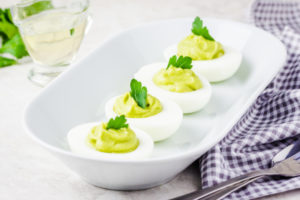
Any athlete needs healthy habits to perform their best. Here are nutrition tips for young athletes to stay healthy and thrive in their sport.
Taking up a sport or joining a sports team is a great way for kids and teens to build strong bones and muscles, but what happens to a young athlete when they don’t get the nutrients they need to promote health? According to the International Olympic Committee (IOC), young athletes who don’t eat well may experience unintended weight loss, poor growth, and development, sports-related injuries, repeat illnesses, mood changes, and decreased performance (1). Additionally, young athletes have a more difficult time tolerating high temperatures and thus are at an increased risk of dehydration when performing. We compiled a list of key nutrition tips to focus on for your young athlete.
What nutrients do growing young athletes need?
The IOC claims nutrients that stimulate growth such as vitamin D, calcium, and iron, are often lacking in youth with restrictive diets (1). Although it’s important to encourage your child to exercise, it’s equally critical to make sure they’re getting the energy and fluid they need to support an active lifestyle!
Here are a few simple tips to ensure adequate nutrition in your young athlete:
Meal plan, plan, plan
Planning out balanced meals in advance can prevent young athletes from adopting overly restrictive diets. It is important that your child eats a variety of foods and gets appropriate amounts of fat, adequate-protein, and plenty of complex carbohydrates like whole grains, fruits, and veggies. Check MyPlate for a list of healthy foods to help with meal planning.
Don’t slack on the snacks
Even with a set meal schedule, your active child will need snacks throughout the day. Tuna on crackers with grapes, fruit and yogurt parfaits with walnuts, peanut butter with sliced fruit sandwiches, cantaloupe with salt, veggies with hummus, or pretzels with peanut butter are great nutrient-dense options to help young athletes meet their energy needs. Be sure to pack similar snacks for your kid’s next event!
Please the palate with flavored drinks
For active kids who struggle to drink enough water, flavored beverages can be a more enjoyable option. Try giving your little athlete fruit-infused water for a naturally sweeter taste. Remember to limit the sports drinks to events that last over an hour and take place during high temperatures and/or humidity.
Buddy up to the coach
Another way to make sure your child is getting the nutrients they need is through his or her coach. Ask the coaches to allow adequate fluid breaks to chug water, as well as snack times before and after vigorous sports activities. Learn more about hydration in kids.
Praise effort, not performance
Those in competitive youth sports tend to receive a lot of praise for performance and physique. This praise can result in pressure to maintain a high level of performance, and cause young athletes to develop disordered eating habits to meet expectations. To prevent this unhealthy behavior, focus on your child’s efforts and invite coaches to do the same. Learn more about building healthy body images.
Skip the supplements
In an effort to improve performance, athletes of all ages often turn to dietary supplements such as vitamins and minerals, energy drinks and bars, and protein shakes. However, for most young athletes, a varied diet based on whole foods can supply the energy and nutrients needed to enhance performance. Encourage your active one to choose food over supplements to gain that competitive edge!
By following these tips, your young athlete can develop the best dietary habits to help them grow strong and healthy. If you want to learn more about nutrition for youthful athletes, read what sports dietitian, Nancy Clark M.S., RD, has to say on the topic here.













